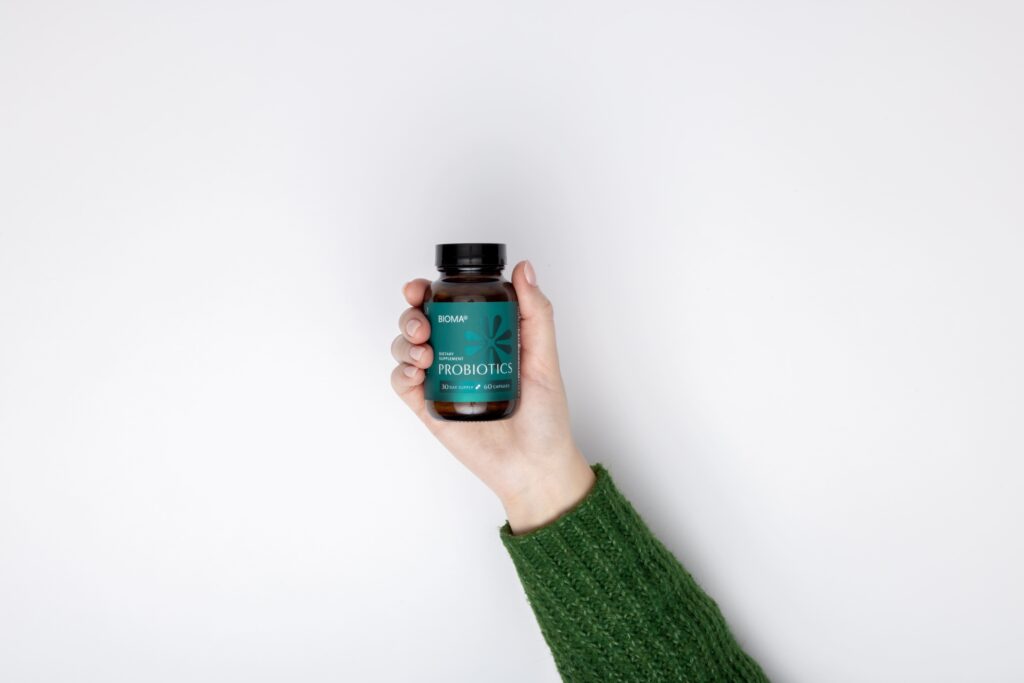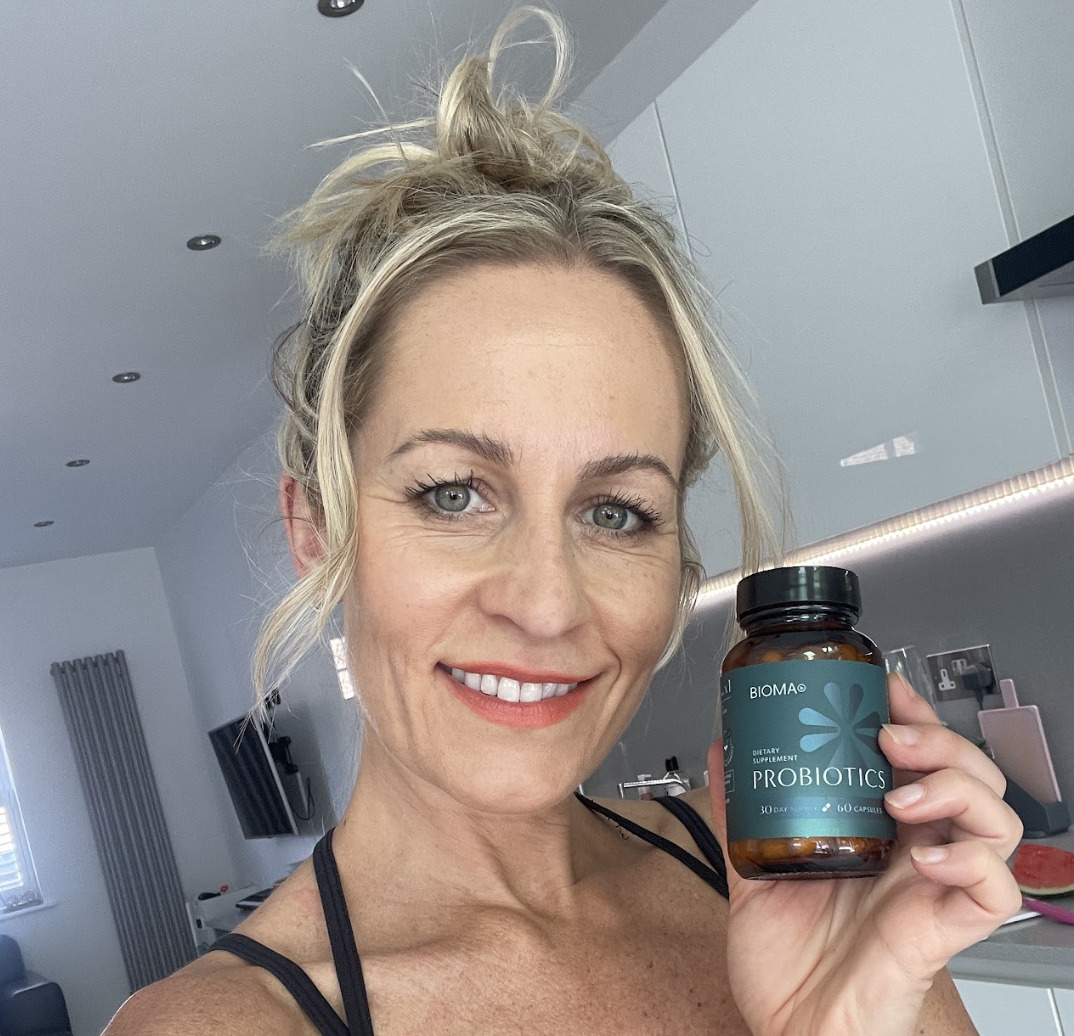Probiotics for Menopause

Navigating through menopause can be a challenging journey for many women. As the body undergoes significant hormonal changes, finding natural and effective ways to ease the transition becomes crucial.
Enter probiotics for menopause, a potential ally in this natural phase of life. Probiotics, widely recognized for promoting gut health, may also offer relief from various menopausal symptoms. This article delves into the connection between menopause and gut health and explores how the best probiotics for menopause could be a game-changer for women seeking holistic wellness during this pivotal time.

Menopause and Gut Health
Menopause marks a period of profound change in a woman’s body, and its effects are not limited to reproductive functions. It can also impact gut health, which in turn influences overall well-being.
During menopause, fluctuations in estrogen and progesterone levels can affect the gut microbiome, potentially leading to digestive issues, inflammation, and changes in nutrient absorption.
The gut is often referred to as the body’s “second brain” for a good reason. It’s home to trillions of bacteria that play a role in everything from digestion to immune function. Maintaining a healthy gut microbiome is especially important during menopause, when women are more susceptible to weight gain, bone density loss, and mood swings.
Because of that, probiotics for menopause have emerged as a promising natural remedy to support gut health and alleviate some of the discomforts associated with this life stage. Incorporating probiotic-rich foods and supplements into the diet can help balance the gut flora, which may ease menopausal symptoms such as hot flashes, poor sleep, and mood disturbances.
In addition to digestive health, menopausal women often face challenges with vaginal health, including increased susceptibility to vaginal infections and discomforts like vaginal dryness. The changes in hormone replacement therapy often employed during menopause can also affect the vaginal microbiota, similar to how they influence the oral and gut microbiota.
Research suggests that maintaining a healthy gut microbiota through probiotic supplementation can support not only overall gut health but also vaginal health. This is crucial because the gut microbiota and vaginal microbiota are interconnected, and an imbalance in one can lead to issues in the other, impacting overall well-being in postmenopausal women.
Best Probiotics for Menopause
When it comes to managing menopause symptoms, not all probiotics are created equal. The key is to find probiotic supplements that specifically target issues associated with menopause.
Key factors when selecting the best probiotics for menopause
Strain diversity: Look for supplements that offer a variety of bacterial strains. Different strains offer different health benefits, and a diverse microbiome is a healthy one. Lactobacillus and Bifidobacterium are two common and effective strains often recommended for women’s health.
CFU count: CFU, or colony-forming units, indicate the number of live and active microorganisms in each dose. While a higher CFU count may seem better, it’s more important to choose a product with an optimal CFU count that has been specifically tailored for menopausal symptoms.
Quality and purity: Choose supplements that are free from unnecessary additives, allergens, and fillers. Quality probiotics often highlight their purity and safety standards on the packaging.
Targeted benefits: Some probiotics are formulated to address specific menopause symptoms, such as mood swings, hot flashes, or weight gain. Read the labels carefully to find a product that matches your specific needs.
In the context of natural remedies for menopause, Bioma emerges as a notable option. It’s crafted to focus on maintaining a balanced gut microbiome, which is crucial during menopause.
Bioma’s formulation aligns with the needs of women going through menopause, offering a blend of strains that support gut health and may help alleviate common menopause symptoms. Whether it’s easing digestive discomfort or providing overall well-being support, Bioma stands out as a tailored choice for women navigating this natural phase of life.

Postmenopause and gut health
What about after menopause? Should you continue taking supplements? Here are a few things you should note:
For postmenopausal women, the importance of bone health cannot be overstated. Clinical trials have shown that probiotic bacteria can play a role in supporting bone health. Regular intake of a probiotic supplement can help menopausal women maintain stronger bones, reducing the risk associated with bone density loss.
Furthermore, probiotics have been found to be beneficial in alleviating severe symptoms of menopause, such as night sweats and vaginal dryness. It’s a holistic approach that not only targets the symptoms but also contributes to the overall quality of life during and after the menopause transition.
Probiotic-Rich Foods
Integrating probiotic-rich foods into your diet is an excellent way to support gut health, especially during menopause.
These foods are naturally teeming with beneficial bacteria that can help balance your gut microbiome, potentially easing menopause symptoms and enhancing overall wellness. Here’s a list of some of the best natural sources of probiotics:
Yogurt: One of the most well-known probiotic foods, yogurt is made by fermenting milk with live cultures. It’s not only a versatile addition to your diet but also a rich source of probiotics, particularly strains like Lactobacillus and Bifidobacterium.
Kefir: This fermented milk drink, similar to a liquid yogurt, is packed with probiotics. It’s a powerhouse for improving digestion and can be a soothing dietary addition during menopause.
Sauerkraut: Made from fermented cabbage, sauerkraut is not only rich in probiotics but also in fibers, vitamins, and minerals. Its tangy flavor can add a zest to a variety of dishes.
Kimchi: A staple in Korean cuisine, this spicy, fermented cabbage dish is loaded with probiotics and can be a flavorful way to boost your gut health.
Miso: This Japanese seasoning, produced by fermenting soybeans with salt and a fungus, is a delicious way to add probiotics to your soups and marinades.
Tempeh: Fermented soybeans form tempeh, a probiotic-rich food that’s a great plant-based protein source.
Kombucha: This fermented tea is not only trendy but also a good source of probiotics, making it a great beverage choice for women in menopause.
Using Probiotics as Natural Remedies
For women experiencing menopause, incorporating probiotics into their daily routine offers a natural avenue to manage various symptoms. Recognized as natural remedies for menopause, probiotics can help balance gut health, which in turn influences overall well-being during this transition.
Morning rituals: Begin the day with a probiotic-rich yogurt or kefir. This simple addition to your breakfast can support digestive health and set a positive tone for the day.
Fermented foods: Include fermented foods like sauerkraut, kimchi, or miso in your diet. These foods are not only flavorful but also excellent sources of probiotics, enhancing gut health and potentially easing menopausal discomforts.
Probiotic supplements: For those with dietary restrictions or preferences, probiotic supplements can be a convenient alternative. A good option would be Bioma.
Pair with prebiotics: Enhance the effectiveness of probiotics by consuming prebiotic-rich foods like garlic, onions, and whole grains. This combination nurtures a healthy gut environment, crucial during menopause.
Incorporating these strategies into your lifestyle can significantly aid in navigating menopause with ease.
Conclusion
In the landscape of natural health remedies, probiotics for menopause stand out as a beacon of relief and balance. Integrating these beneficial bacteria into the diet can profoundly ease the journey through menopause, providing natural support for a range of menopause symptoms. The connection between gut health and menopause is undeniable, with probiotics playing a crucial role in maintaining this critical balance.
Incorporating probiotic-rich foods into daily meals can be a delicious and simple way to boost gut health. For those seeking more targeted support, the best probiotics for menopause supplements can be an effective addition to their health regimen. These supplements can help in stabilizing the gut microbiome, which is vital for overall well-being during this transitional phase.
The use of probiotics, whether through diet or supplements, offers a pathway to not only alleviate common menopausal discomforts but also to bolster overall health. By understanding and embracing the power of natural remedies for menopause, women can navigate this natural life stage with greater confidence and comfort. Probiotics, in their simplicity and efficiency, emerge as an essential ally for women seeking to maintain balance and wellness during menopause.

Related articles






